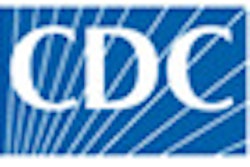In 2008, physicians at Mayo Clinic Florida, led by Herbert Wolfsen, MD, were looking for new ways to keep in touch with the large group of esophageal cancer patients cared for by him and other gastroenterologists and surgeons.
Telephone calls, faxes, and email had worked to create a network of patients, but many also wanted interactive and remote access capability to share their experiences and challenges with this disease, according to the Mayo Clinic. Dr. Wolfsen's daughter, Christianne, working as a Mayo research assistant, thought starting an online chat group using a Facebook community might be the answer.
That Facebook experiment has proved to be so successful and sustainable that Dr. Wolfsen will talk about the use of social media for survivors of esophageal cancer this week at the American College of Gastroenterology annual meeting in Washington, DC.
"This is much more than a support group," he stated in a press release. "Our patients and their families are focused and devoted to educating others about their experience with the diagnosis and treatment of this cancer."
The patients in the group face unique medical issues. Most of them have undergone, or will soon have, endoscopic therapy or esophagectomy, the surgical removal of all or part of the esophagus and the top of the stomach. The remaining part of the stomach is then drawn up and attached to the remaining section of esophagus. The surgery potentially leads to numerous digestive, nutritional, and lifestyle concerns for patients and their caregivers, such as reflux, swallowing problems, nausea, sweating, diarrhea, and fatigue after eating, and chronic, severe cough and aspiration, according to Dr. Wolfsen.
The Facebook community quickly became a forum where patients offered help and support to each other and their families, answering questions many physicians aren't really good at, he added.
"Physicians can talk about the technical aspects of esophageal cancer and its treatment, but we don't really know what it means to have issues with breathing, eating, sleeping, and just trying to live a normal life after cancer treatment because we haven't had this experience," he said.
Over time, patients recently diagnosed with Barrett's dysplasia or esophageal cancer who were contemplating their endoscopy and surgery treatment options were invited to join the group to learn from other patients who have already lived through this experience. The Facebook group site is private and is accessed by Mayo Clinic invitation only. Physicians do not offer medical advice to the group, but may individually contact their patients.
Mayo Clinic staff who treat such patients have also benefited from the group, Dr. Wolfsen said.
"We understand more about the many issues that our patients can really struggle to overcome. Many of the techniques, methods, medications, and lifestyles changes they develop to cope with them aren't in the textbooks -- they are word of mouth," he said. "Nothing works the same for each person, and every patient's experience is valuable."



















